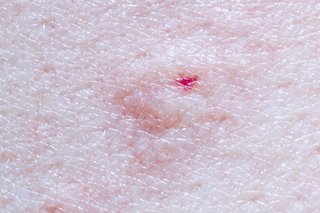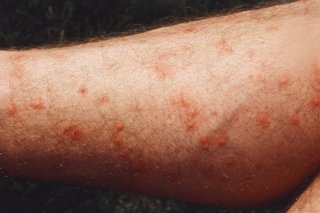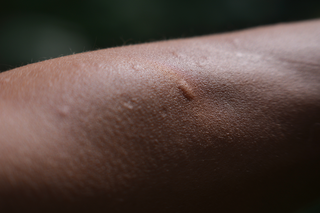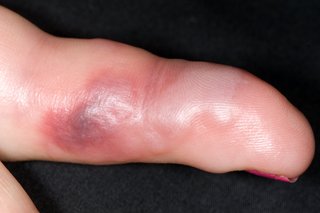Insect bites or stings are not usually serious and get better in a few days. But sometimes they can become infected or cause a serious allergic reaction.
Bites from some insects can also cause illnesses, such as Lyme disease from ticks, scabies from mites, and malaria from mosquitoes in certain parts of the world.
Check if it's an insect bite or sting
The main symptoms of an insect bite or sting are:
- pain where you were bitten or stung
- a small, swollen lump on the skin
The lump may look red. It may be more difficult to see on black or brown skin, but you should be able to feel it.



















